
Report on the Regional workshop on empowering progress: strengthening implementation of the WHO Global Initiative for Childhood Cancer in the Eastern Mediterranean Region
Publication date: 2024
A regional workshop on Empowering progress: strengthening implementation of the WHO Global Initiative for Childhood Cancer (GICC) in the Eastern Mediterranean Region was held in Cairo, Egypt on 4–5 March 2024, with the aim of accelerating action to fight childhood cancer in the Region. Medical advances have led to high survival rates for children with cancer in high-income countries, but low- and middle-income countries have significantly lower survival rates due to disparities in access to quality care. The Region is projected to see a substantial increase in paediatric cancer cases and mortality by 2050, driven by population growth rather than modifiable risk factors, emphasizing the reliance on health systems’ capacity for timely diagnosis and treatment.
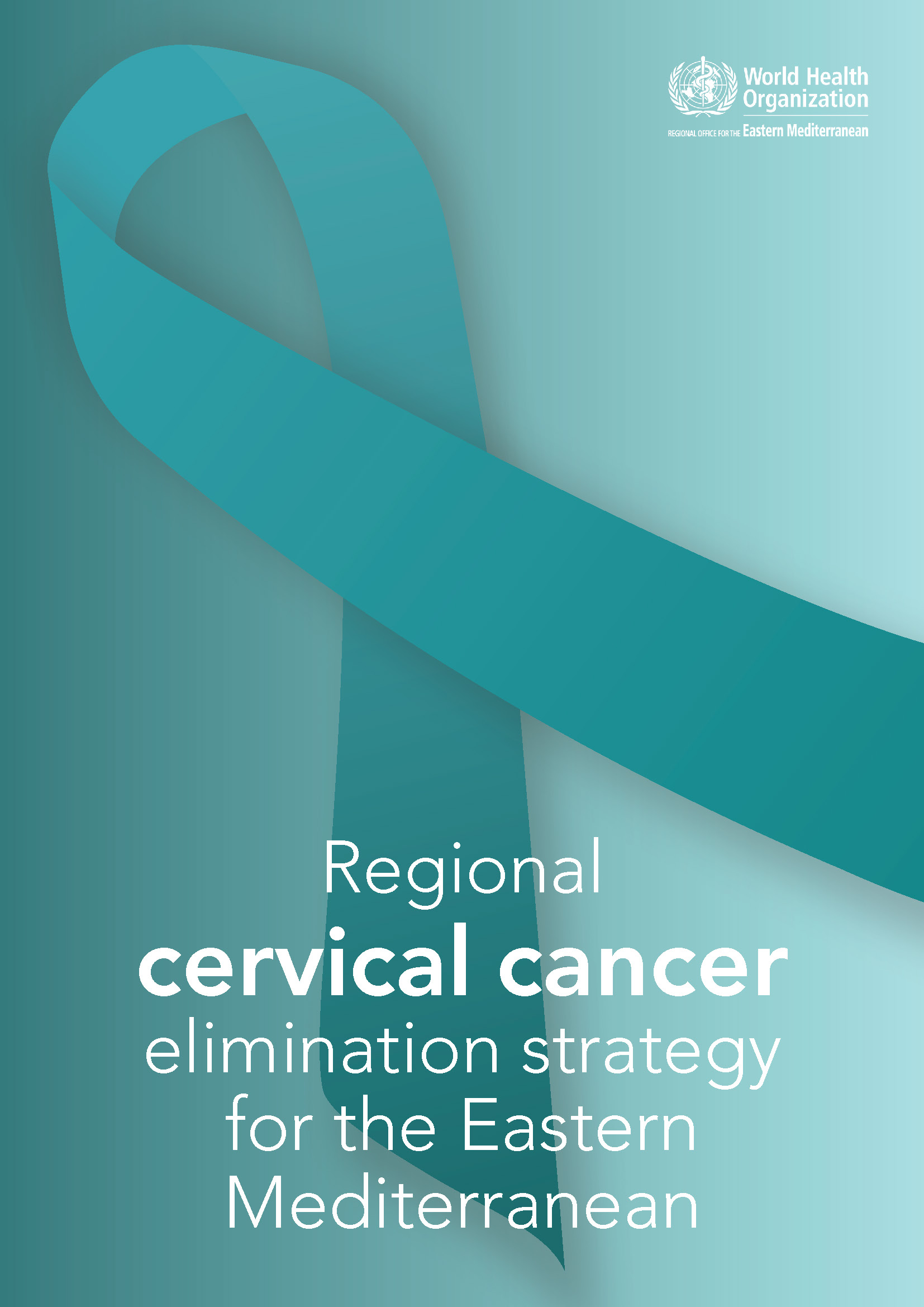
Regional cervical cancer elimination strategy
Publication date: 2023
Cervical cancer is a preventable and curable disease that disproportionately affects women in low- and middle-income countries. WHO aims to eliminate cervical cancer as a public health issue globally by 2120. To achieve this, WHO has set interim targets to be met by 2030, including vaccinating 90% of girls with the HPV vaccine, screening 70% of women with high-performance tests, and ensuring 90% of women with pre-cancer and invasive cancer receive treatment. To support this global effort, a regional strategy has been developed for the WHO Eastern Mediterranean Region, taking into account its unique religious, cultural, social, economic and geographical contexts.
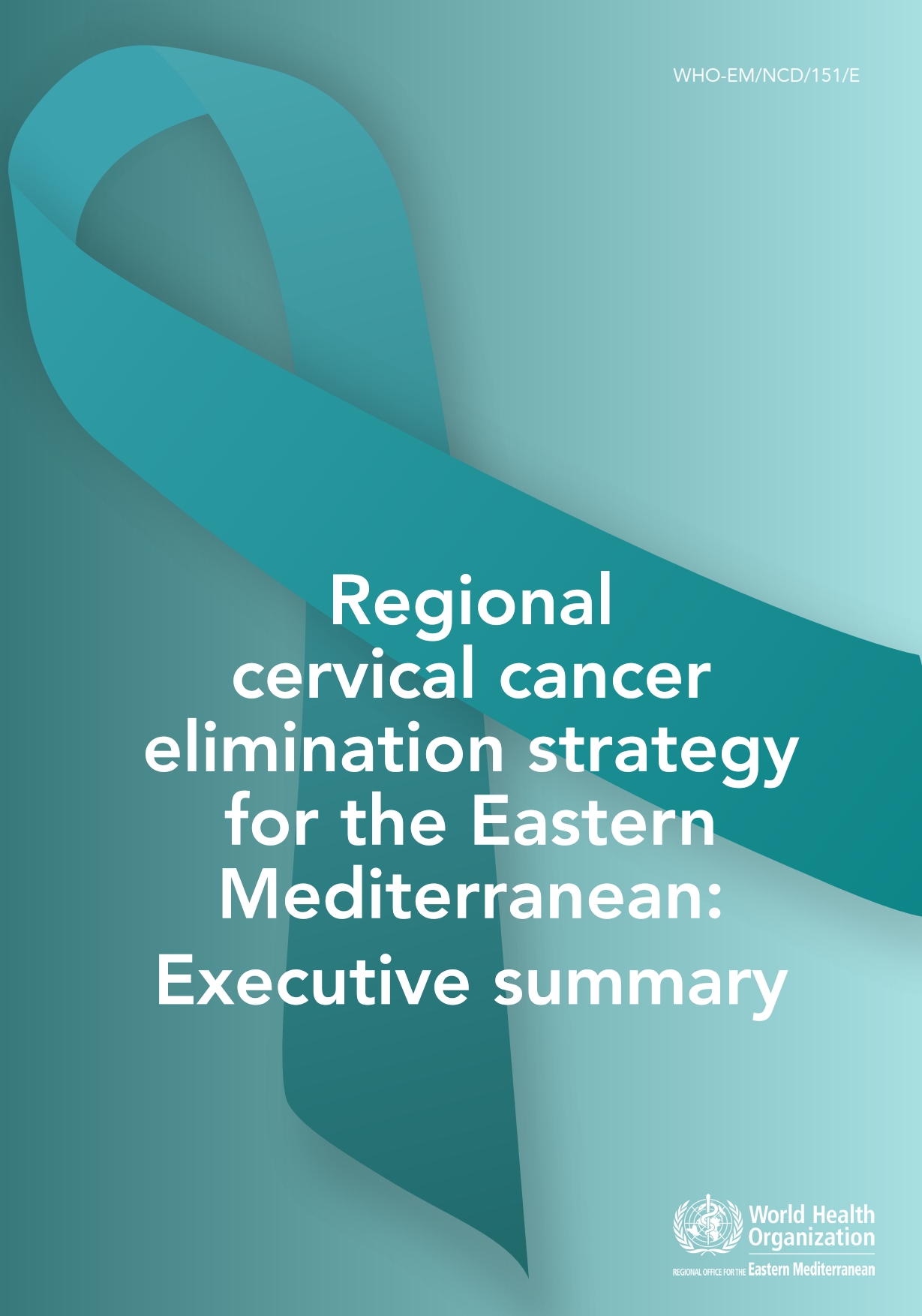
Regional cervical cancer elimination strategy: Executive summary
Publication date: 2023
Cervical cancer is a preventable and curable disease that disproportionately affects women in low- and middle-income countries. WHO aims to eliminate cervical cancer as a public health issue globally by 2120. To achieve this, WHO has set interim targets to be met by 2030, including vaccinating 90% of girls with the HPV vaccine, screening 70% of women with high-performance tests, and ensuring 90% of women with pre-cancer and invasive cancer receive treatment. To support this global effort, a regional strategy has been developed for the WHO Eastern Mediterranean Region, taking into account its unique religious, cultural, social, economic and geographical contexts.
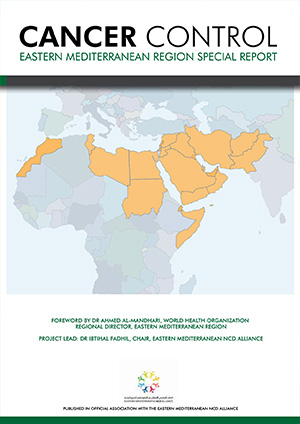
Cancer Control: Eastern Mediterranean Region Special Report
Publication date: 2022
This regional report on the 2017 noncommunicable diseases (NCDs) country capacity survey offers an overview of the current capacities of the countries of the Region to prevent and control NCDs, particularly in regard to the four key areas of: governance, prevention and reduction of risk factors, surveillance, monitoring and evaluation, and health care. The report aims to inform the work of decision-makers in ministries of health and other sectors related to health, NCD managers, physicians, clinicians, researchers, the media and others.
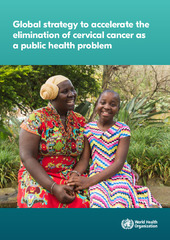
Global strategy to accelerate the elimination of cervical cancer as a public health problem
Publication date: 2020
In August 2020, the World Health Assembly adopted the Global strategy for cervical cancer elimination. The strategy outlines a comprehensive approach that includes prevention, effective screening and treatment of pre-cancerous lesions, early cancer diagnosis and programmes for the management of invasive cervical cancer including palliative care. It proposes: a vision of a world where cervical cancer is eliminated as a public health problem; a threshold of 4 per 100 000 women-years for elimination as a public health problem; the 90-70-90 targets that must be met by 2030 for countries to be on the path towards cervical cancer elimination: and a mathematical model that illustrates the interim benefits of achieving the 90-70-90 targets by 2030 in low- and lower-middle-income countries.
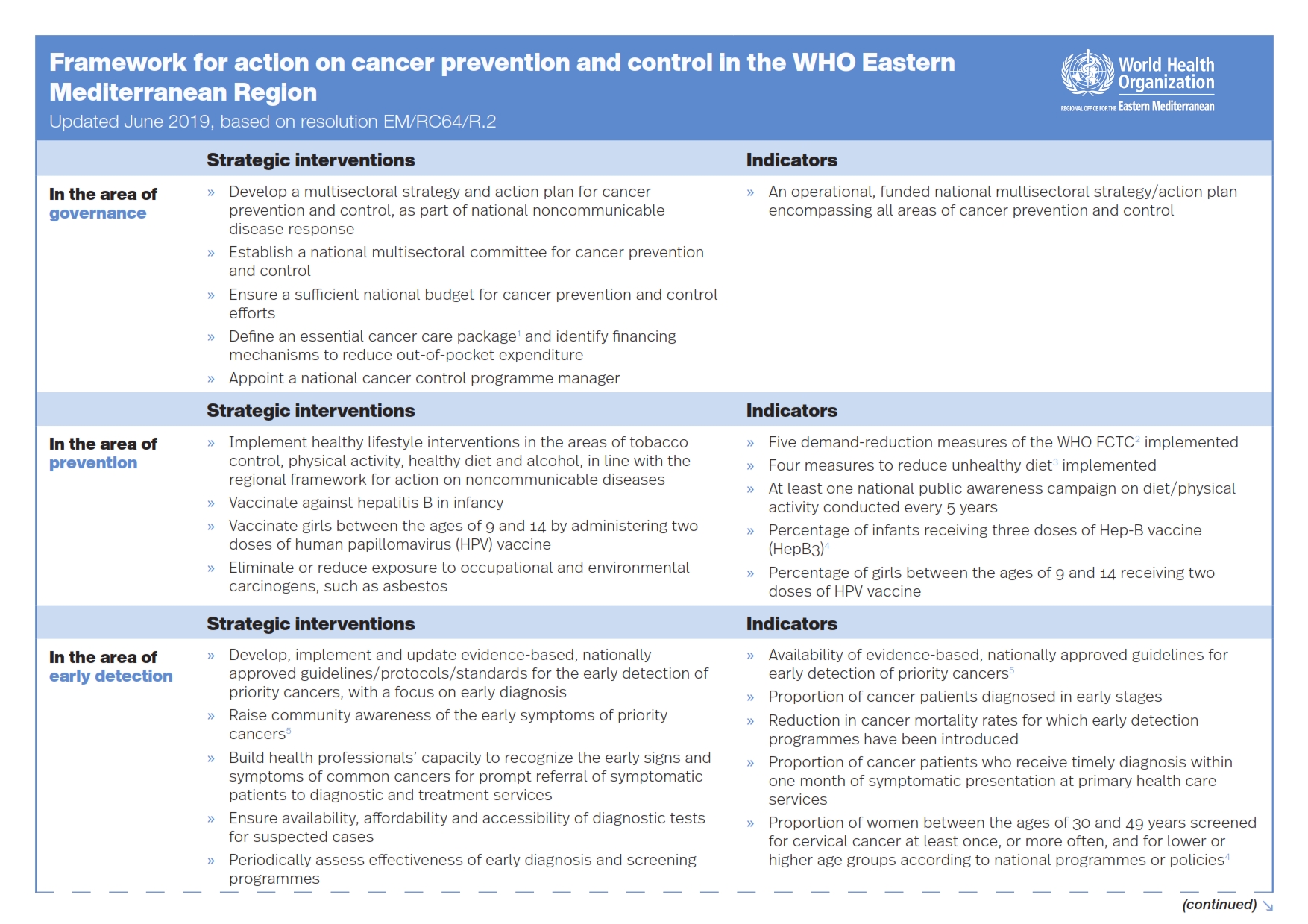
Framework for action on cancer prevention and control in the WHO Eastern Mediterranean Region
Publication date: 2019
In October 2019, the WHO Regional Committee for the Eastern Mediterranean endorsed the updated regional framework to support countries scale up action on cancer prevention and control in the Region. The regional framework provides strategic interventions and indicators for countries to assess their progress in the six domains of: governance; prevention; early detection; management; palliative care; and surveillance and research.
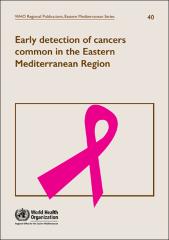
Early detection of cancers common in the Eastern Mediterranean Region
Publication date: 2017
The impact of the growing burden of cancer in countries of the WHO Eastern Mediterranean Region is evident and necessitates implementation of suitable and effective cancer control policies. Cancer control programmes should primarily target those cancers most responsible for the high burden of disease, that have major public health implications, and for which there is robust evidence that the systematic application of interventions will lead to a reduction in mortality in a cost-effective manner, in the context of the available health care resources.
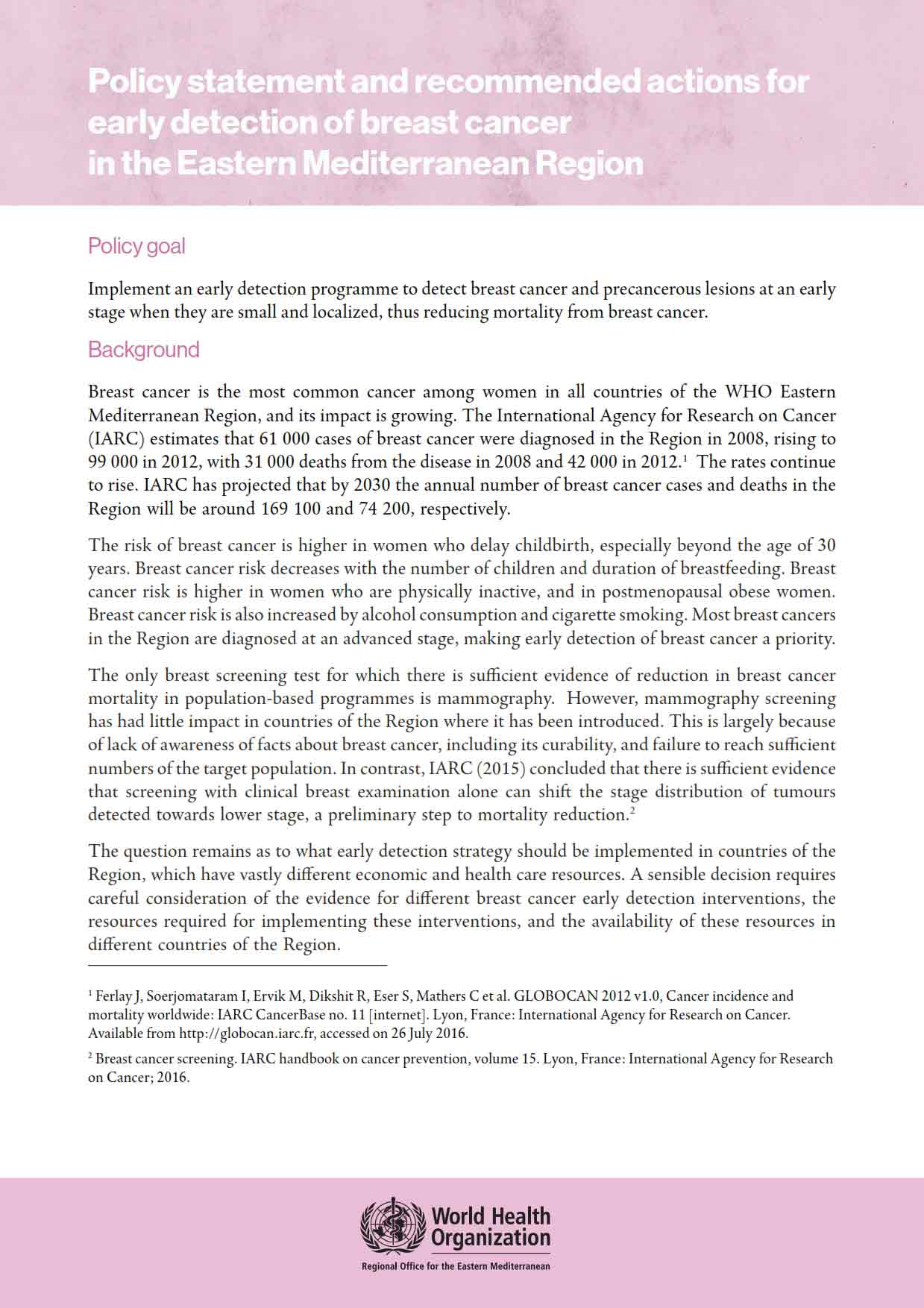
Policy statement and recommended actions for early detection of breast cancer in the Eastern Mediterranean Region
Publication date: 2016
Breast cancer is the most common cancer among women in all countries of the WHO Eastern Mediterranean Region, and its impact is growing. This policy statement was published in 2016 with the goal of identifying the priority actions for Member States to Implement an early detection programme to detect breast cancer and precancerous lesions at an early stage when they are small and localized, thus reducing mortality from breast cancer.
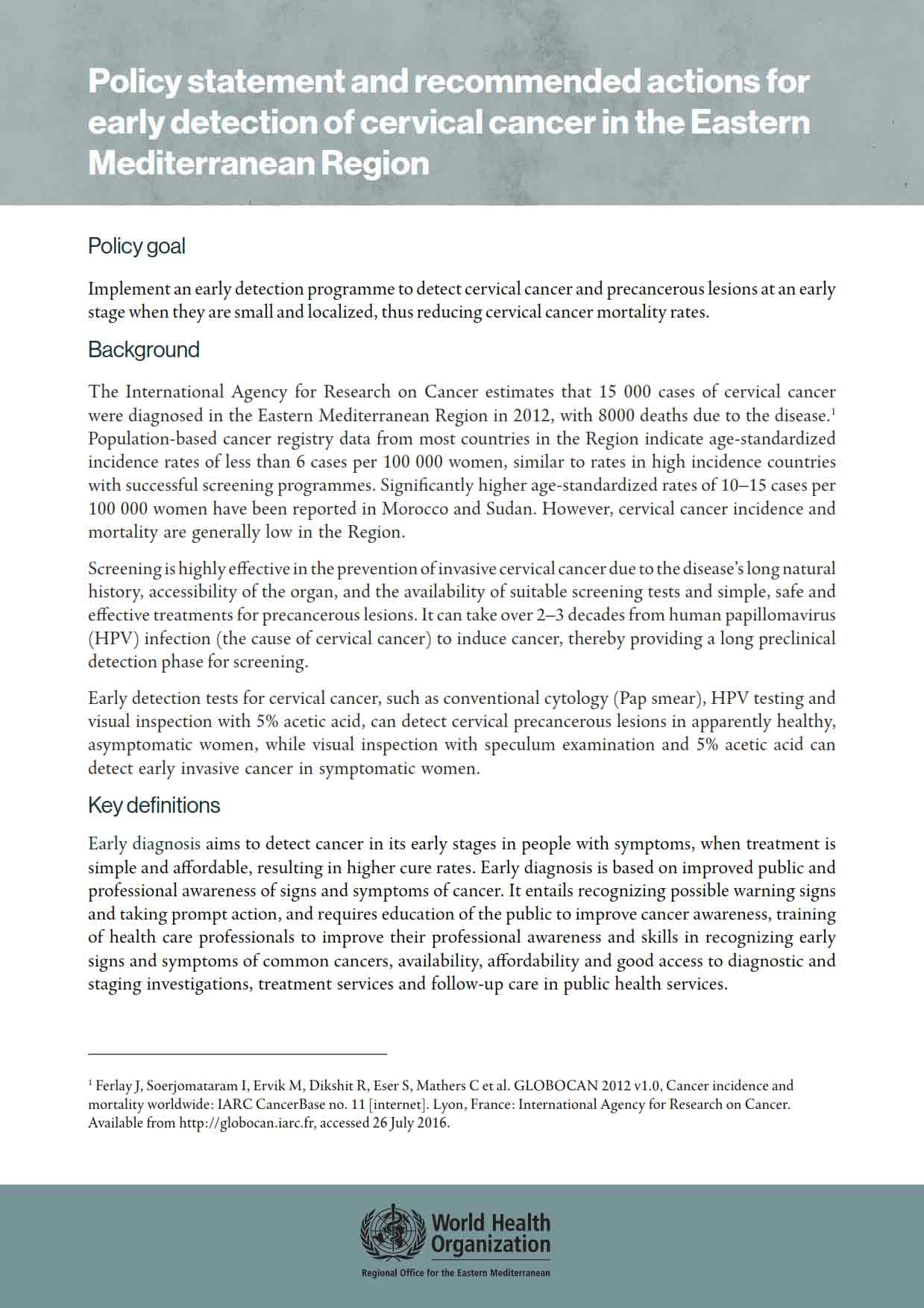
Policy statement and recommended actions for early detection of cervical cancer in the Eastern Mediterranean Region
Publication date: 2016
The International Agency for Research on Cancer estimates that 15 000 cases of cervical cancer were diagnosed in the Eastern Mediterranean Region in 2012, with 8000 deaths due to the disease. This policy statement was published in 2016 with the goal of identifying the priority actions for Member States to implement an early detection programme to detect cervical cancer and precancerous lesions at an early stage when they are small and localized, thus reducing cervical cancer mortality rates.
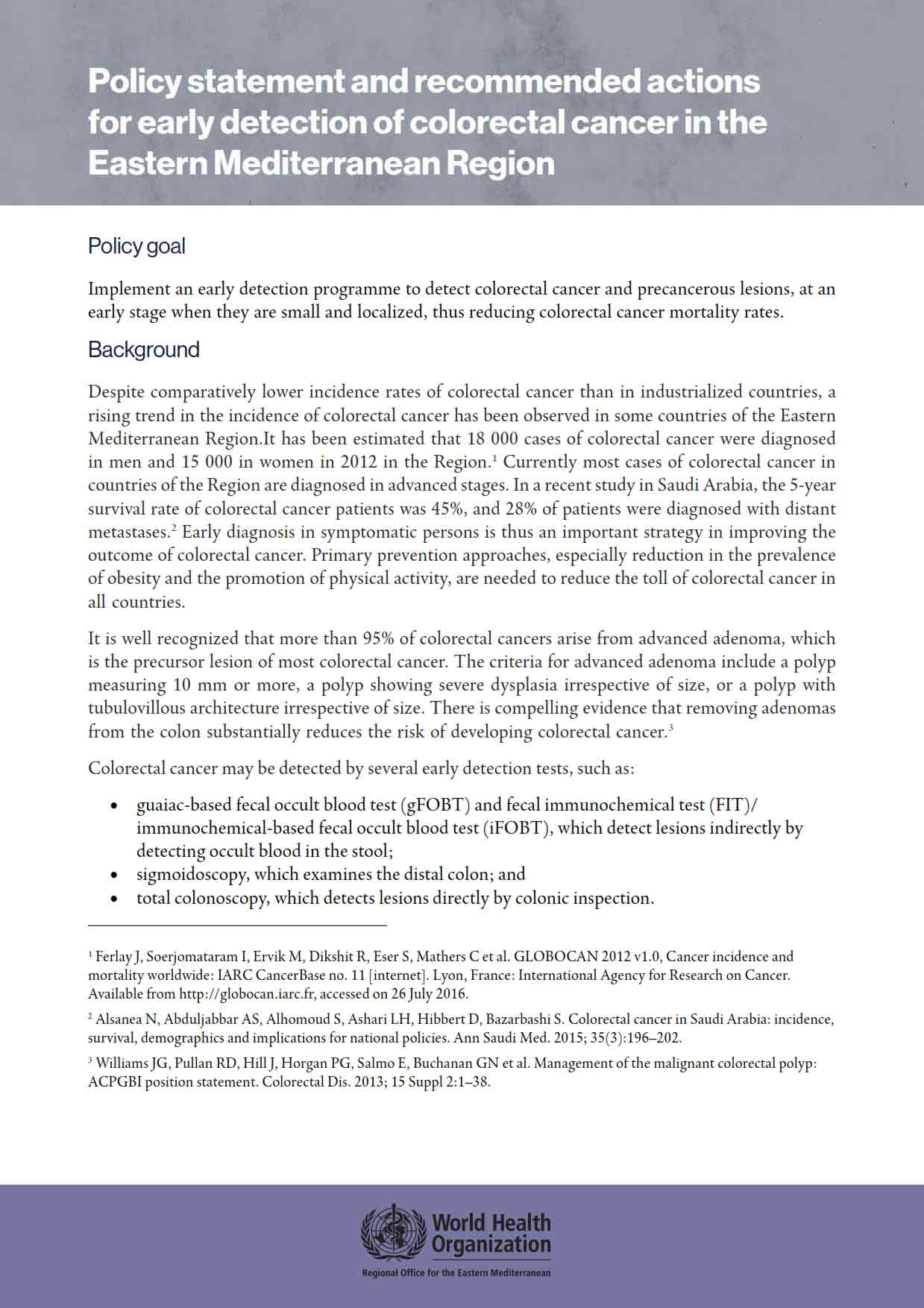
Policy statement and recommended actions for early detection of colorectal cancer in the Eastern Mediterranean Region
Publication date: 2016
Despite comparatively lower incidence rates of colorectal cancer than in industrialized countries, a rising trend in the incidence of colorectal cancer has been observed in some countries of the Eastern Mediterranean Region. It has been estimated that 18 000 cases of colorectal cancer were diagnosed in men and 15 000 in women in 2012 in the Region. This policy statement was published in 2016 with the goal of identifying the priority actions for Member States to implement an early detection programme to detect colorectal cancer and precancerous lesions, at an early stage when they are small and localized, thus reducing colorectal cancer mortality rates.
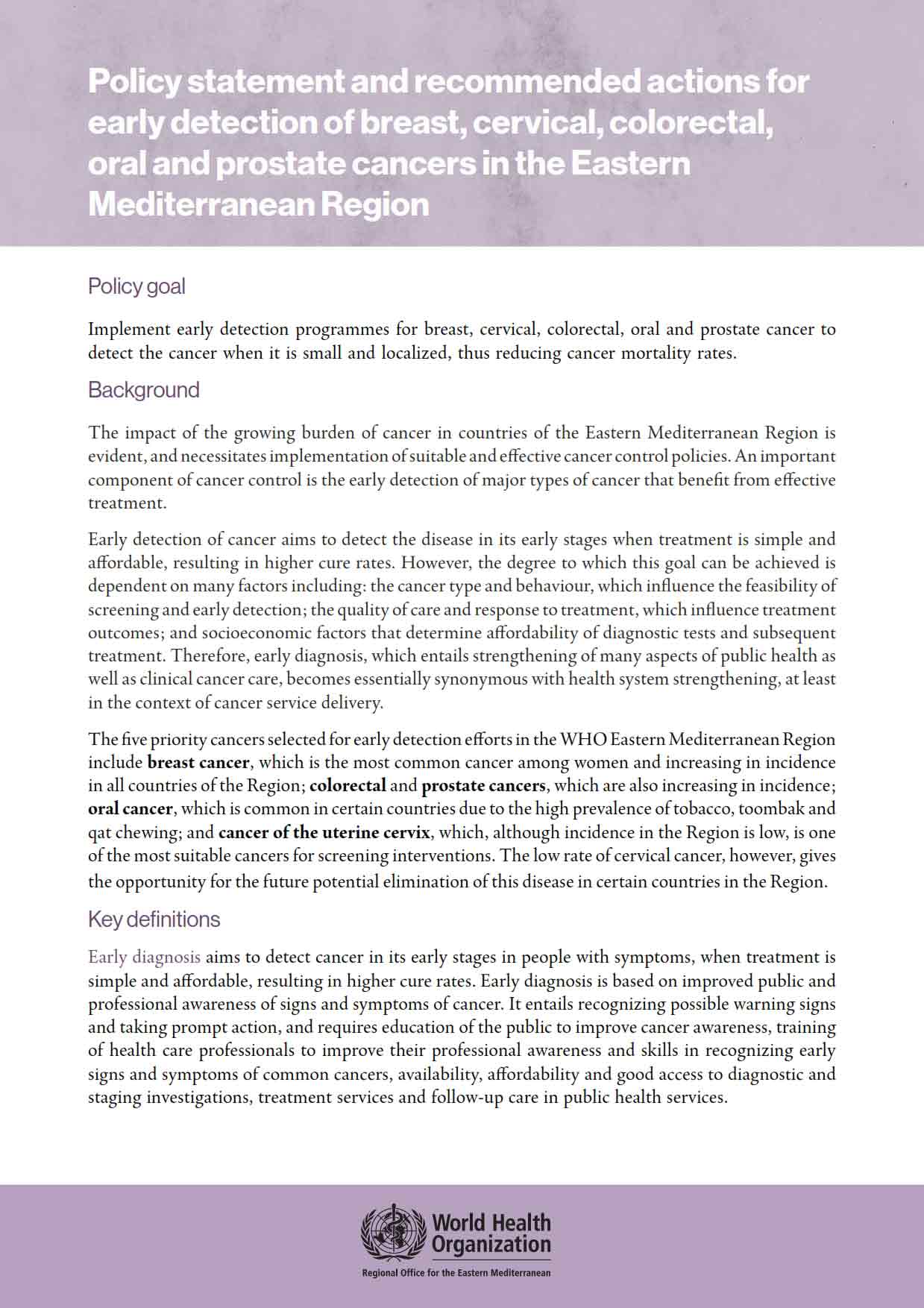
Policy statement and recommended actions for early detection of breast, cervical, colorectal, oral and prostate cancers in the Eastern Mediterranean Region
Publication date: 2016
The impact of the growing burden of cancer in countries of the Eastern Mediterranean Region is evident, and necessitates implementation of suitable and effective cancer control policies. An important component of cancer control is the early detection of major types of cancer that benefit from effective treatment. This policy statement was published in 2016 with the goal of identifying the priority actions for Member States to implement early detection programmes for breast, cervical, colorectal, oral and prostate cancer to detect the cancer when it is small and localized, thus reducing cancer mortality rates.
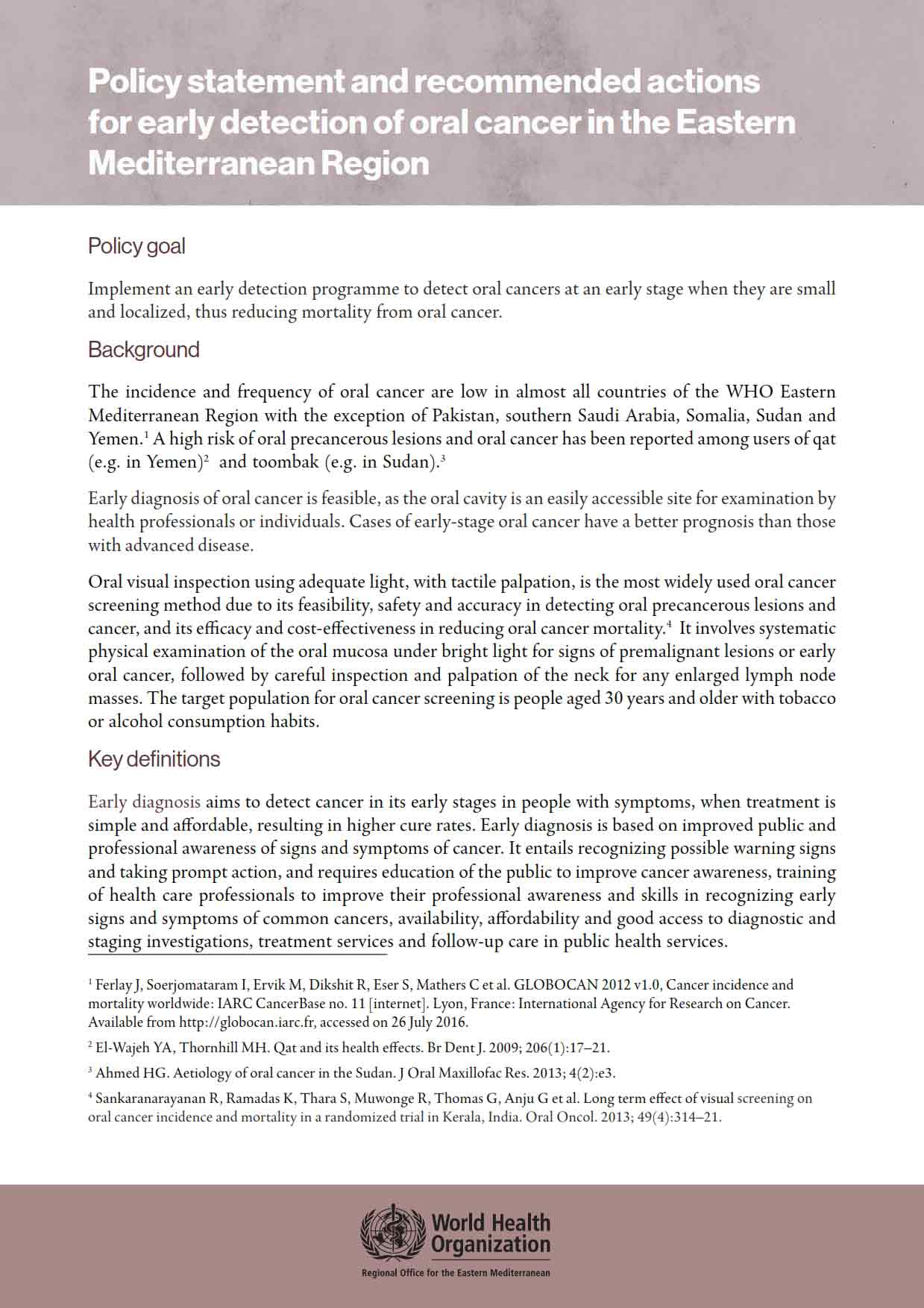
Policy statement and recommended actions for early detection of oral cancer in the Eastern Mediterranean Region
Publication date: 2016
The incidence and frequency of oral cancer are low in almost all countries of the WHO Eastern Mediterranean Region with the exception of Pakistan, southern Saudi Arabia, Somalia, Sudan and Yemen. This policy statement was published in 2016 with the goal of identifying the priority actions for Member States to implement an early detection programme to detect oral cancers at an early stage when they are small and localized, thus reducing mortality from oral cancer.
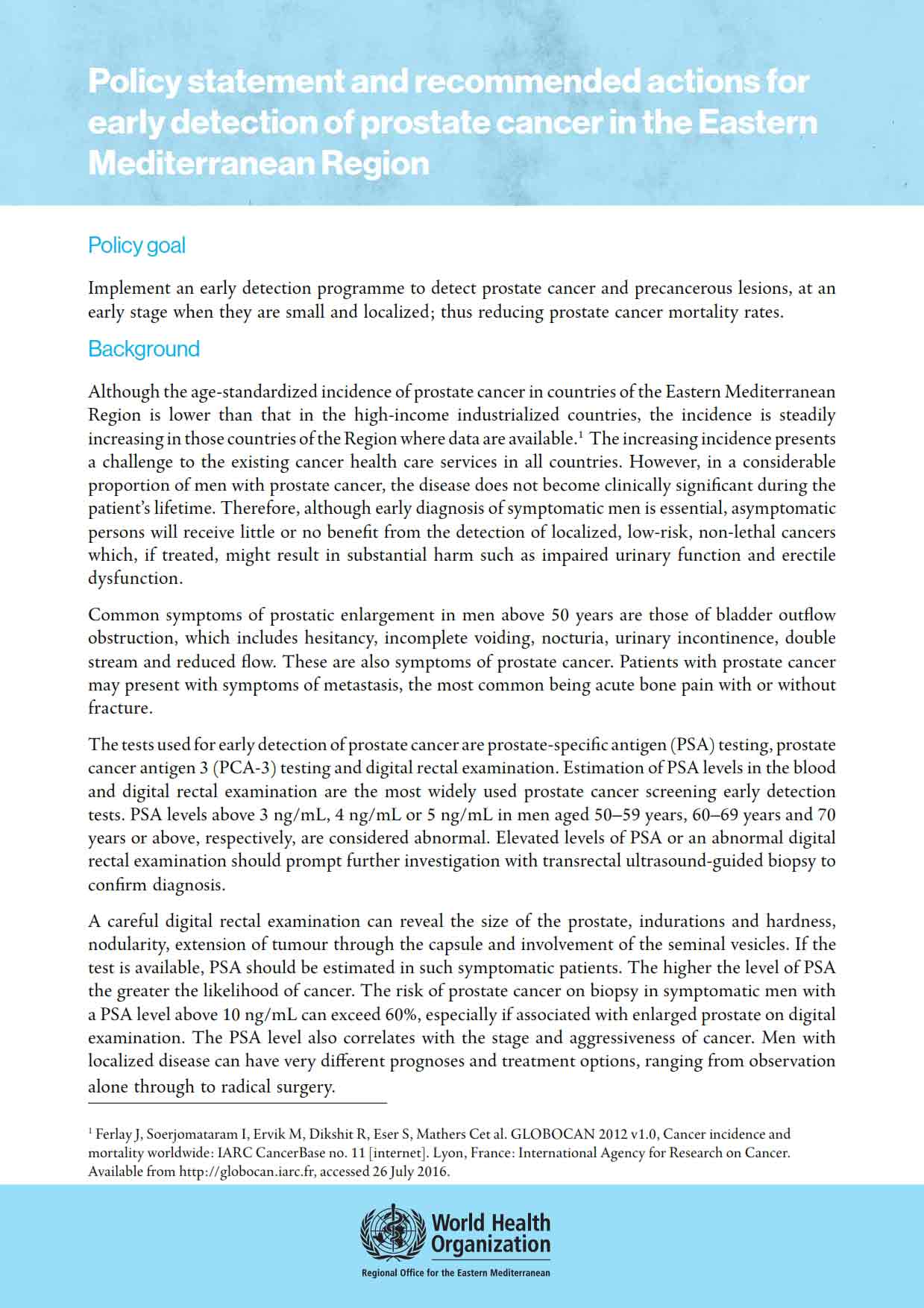
Policy statement and recommended actions for early detection of prostate cancer in the Eastern Mediterranean Region
Publication date: 2016
Although the age-standardized incidence of prostate cancer in countries of the Eastern Mediterranean Region is lower than that in the high-income industrialized countries, the incidence is steadily increasing in those countries of the Region where data are available. This policy statement was published in 2016 with the goal of identifying the priority actions for Member States to implement an early detection programme to detect prostate cancer and precancerous lesions, at an early stage when they are small and localized; thus reducing prostate cancer mortality rates.
Related resources
Cervical cancer elimination initiative
Global breast cancer initiative
Global initiative for childhood cancer
World Cancer Reports (International Agency for Research on Cancer)









